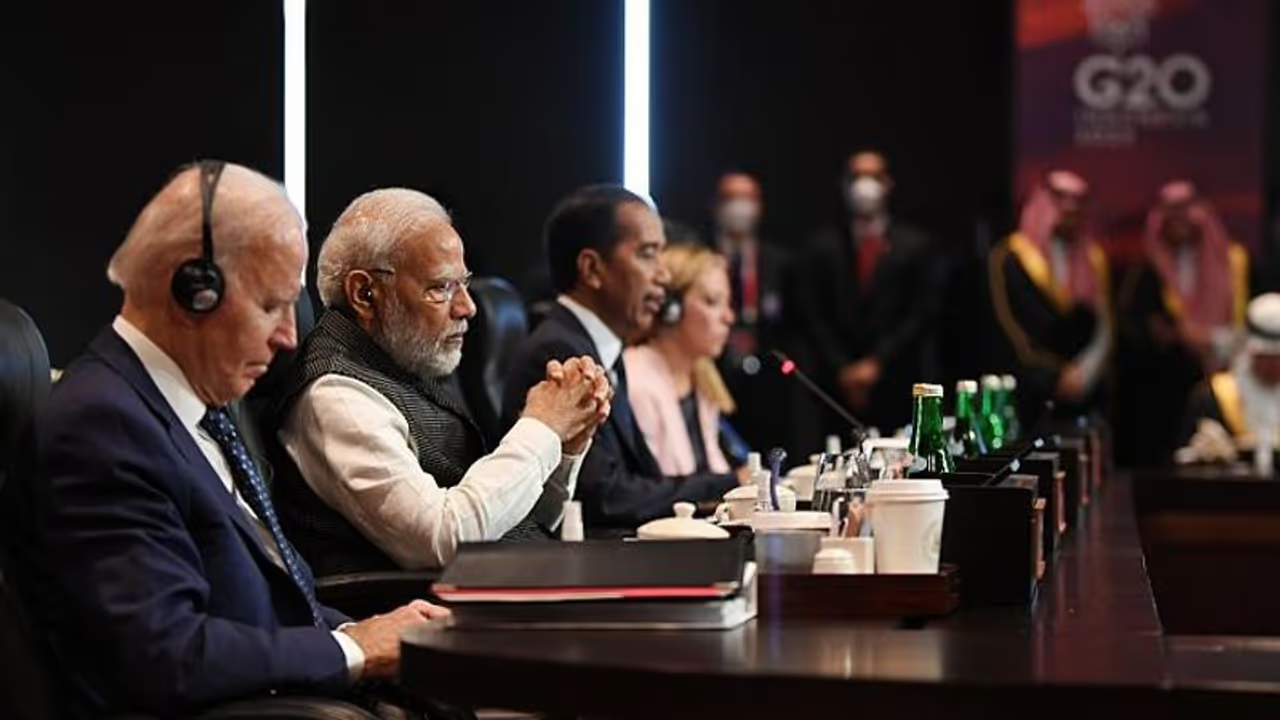'The Second World War wreaked havoc globally over the past century. After the Second World War, the leaders of that time made a serious effort to adopt the path of peace. Now it is our turn,' Prime Minister Modi said.
Prime Minister Narendra Modi on Tuesday told the G20 leadership that it was time for them to make a serious effort to take the path of peace to resolve the Russia-Ukraine issue as was adopted at the end of the Second World War.

Addressing the G-20 Summit's session on Food and Energy Security in Bali, Prime Minister Modi said: 'I have repeatedly said we have to find a way to return to the path of diplomacy and ceasefire in Ukraine. The Second World War wreaked havoc globally over the past century. After the Second World War, the leaders of that time made a serious effort to adopt the path of peace. Now it's our turn.'
Also Read: PM Modi at G20: 'Resilient supply chains for food, fertilisers and energy are critical'
The Prime Minister further said, 'The onus of creating a new world order for the post-Covid period lies on our shoulders. Showing concrete and collective resolve to ensure peace, harmony and security in the world is the need of the hour. I am confident that we will all agree to convey a strong message of peace to the world when the G20 meets in the holy land of Buddha and Gandhi next year.'
Earlier today, Ukraine President Volodymyr Zelensky told the G20 that 'now is the time' to end Russia's 'destructive war' against his country.
The Prime Minister's remarks came just hours after a draft resolution introduced by Ukraine in the UN General Assembly, calling upon Russia to pay reparations to Kyiv for damages, loss and injury resulting from the war, was adopted.
The draft resolution, titled 'furtherance of remedy and reparation for aggression against Ukraine', recorded 94 votes in favour, 14 against and 73 abstentions in the 193-member UN General Assembly.
India was among the countries that abstained from the vote, along with Pakistan, Bangladesh, Bhutan, Indonesia, Sri Lanka, Israel, Nepal, Brazil, Egypt and South Africa.
Explaining its vote, India cautioned against precedents being set through such resolutions and questioned whether a reparation process would assist in the efforts to resolve the conflict.
'The legal validity of such a General Assembly resolution remains unclear,' India's Permanent Representative at the United Nations Ambassador Ruchira Kamboj said, adding, 'We must not create mechanisms, which have implications for the future functioning of the United Nations and the international economic system, without adequate international legal vetting.'
India has mostly abstained on resolutions related to the Russia-Ukraine war in the UN, including in the General Assembly, the Security Council and the Human Rights Council.
The resolution, co-sponsored by nearly 50 nations, recognized that Russia must be held accountable for any international law violations against Ukraine as well as any violations of international human rights laws and that it must bear legal consequences of internationally wrongful acts, including making reparation for the injury, including any damage, caused by such acts.'
